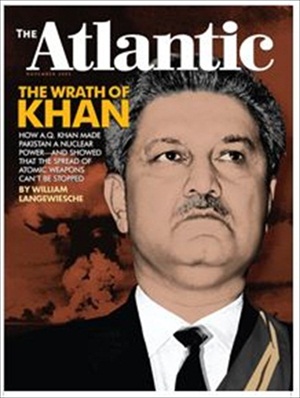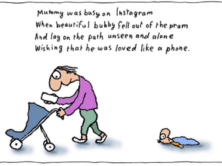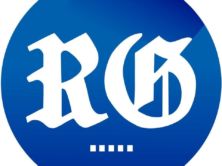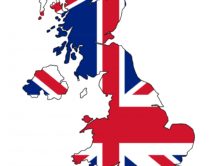
The Atlantic's November 2005 cover story by William Langewiesche features Abdul Qadeer Khan
Highlights:
- iMediaEthics exclusively Interviews A.Q. Khan Despite Court Ban
- Khan falsely accused of “brazen act of illegality” by The Atlantic, William Langewiesche
- The Atlantic‘s fact checkers failed to check zoning laws and court records that show Khan’s home is legal
Pakistan’s Express Tribune, a partner of the International Herald Tribune, cross-posted this report online and in print as part of a new collaboration with iMediaEthics..
In an exclusive interview with iMediaEthics, Abdul Qadeer Khan, the Pakistani metallurgist blamed by the West for making Pakistan a nuclear power, condemned inaccuracies in The Atlantic magazine’s November 2005 cover story that falsely accused him of a “brazen act of illegality” when his “large weekend house” in Islamabad was “built in blatant disregard of the law.”
Khan, a hero in Pakistan since 1998 for helping Pakistan obtain nuclear power equality with India, confessed Feb. 2, 2004, on national television to helping sell nuclear technology to Libya, Iran and North Korea. By May 30, 2008, Khan retracted the confession, saying it was forced by then-President Pervez Musharraf, who had pardoned him, placing him under what was, in effect, house arrest until his release in February 2009.
The Lahore High Court in October 2010 restrained Khan from giving media interviews, and further, ruled that the federal government should abide by the agreement that still restricts Khan’s activities. Despite that order, Khan determined to set the record straight about The Atlantic’s attack.
Khan told iMediaEthics by phone that The Atlantic report “is totally rubbish and based on lies by William Langewiesche, who is a liar.” The Bani Gala house where Khan lives in sight of Rawal Lake “is totally a legal construction, and there are dozens of houses in the row of my house.”
The House of Khan
Langewiesche uses the construction of this house in his story to set up a dramatic opposition between the wealthy Khan, with the large country home, against Islamabad’s poor, who ultimately drink water polluted by development near the lake.
“The court has requested me not to indulge in such interviews and conflicting debates,” Khan said. “But despite this, I would like to say that the writer William Langewiesche has been involved for a long past in my character assassination campaign.”
Khan did not just build a weekend house, according to Langewiesche; he (and soon his rich, powerful friends) defied zoning laws in his choice of location.
Langewiesche wrote: “The attraction was not in the setting on the lake (there are prettier lakes nearby) but, rather, in the open defiance of the law—an opportunity for the display of personal power.”
iMediaEthics found that Langewiesche and The Atlantic fact checkers failed to square that account against the zoning laws and English-language court records that, in fact, show Khan’s home is perfectly legal. In fact, Langewiesche never spoke with Khan about any of the charges he makes in his lengthy cover story.
Who is A.Q. Khan?
|
The truth around Bani Gala still was dramatic enough for a compelling narrative. Rawal Lake formed after Rawal Dam was built in 1962, but the villagers who had lived for generations in Bani Gala only began actively selling land in 1989. Islamabad Capital Development Authority (CDA) issued 24 licenses to the housing societies in the suburbs of Rawal Lake and Islamabad in March 1990. By August, Khan purchased about an acre of land from a dentist, and began building the next year.

A view of Rawal Dam in Islamabad opposite Dr. A.Q. Khan house (Credit: Malik Ayub Sumbal, iMediaEthics)
On June 25, 1992, the CDA and Islamabad police launched an operation against residents of Bani Gala to confront supposed encroachment. Led by SSP Pervaiz Rathore, police arrested more than 70 Bani Gala residents, and during a seven-hour standoff, an exchange of gunfire between the police and the villagers killed two men, Waheed Latif and Muhammad Zakheem. The lake development gained instant infamy.
In 1998, Dr. Khan was among the villagers who filed suits against the CDA, asking for an end to the construction ban or for separate land on which they could build. On June 25, 1999, Justice Muhammad Nawaz Abbassi found in favor of Dr. Khan and other petitioners. An order to bulldoze Khan’s and other villagers’ homes was dismissed.

Khan’s house in Bani Gala is set back from Rawal Lake. (Credit: Google Maps)

Rawal Lake is visible in this Google Map that includes the location of Khan’s house (Credit: Google Maps)
iMediaEthics spoke with S.M. Zaffar, a senior lawyer and senator in Pakistan, who fought the case in High Court Rawalpindi Bench. He confirmed that “the government cleared the position that there is no issue and problem with the house of Khan in Bani Gala” in the case.
He added: “The local inhabitants of the Bani Gala used to sell their lands by showing the court verdict because it was not the issue of only Dr. A. Q. Khan, but all the local residents of Bani Gala who filed petitions along with Dr. Khan in this case.”When contacted by iMediaEthics, Malik Farukh Nadeem was the Teshildar — the senior revenue officer on the sale, purchase and transfer of land. He is now Islamabad’s city magistrate. “The house of Dr. A. Q. Khan is totally legal,” he said. “The verdict of the court has legalized this whole area for all kinds of construction.”

Bani Gala for many is a beautiful village in the suburbs of Rawal Dam. The ancestral inhabitants have resided there for generations. Most of the 6,000 inhabitants are of the Raja, Abbassi and Satti castes. Agriculture, especially cattle farming, provides most of the villagers’ livelihoods. (Credit: Malik Ayub Sumal, iMediaEthics)
Khan’s purchase “was not any expensive land because Bani Gala just got famous after the trial in the court,” Nadeem said. “Otherwise, it is a village with a lack of the basic facilities.”So, it turns out that the battle between rich and poor that Langewiesche paints was instead a political snarl between villagers against government and conflicting jurisdictions of the CDA and the District Government Commissionerate, which normally supervises rural areas such as Bani Gala.
Controversy persists over the water quality in Bani Gala. The prime sources of contamination are poultry farms in the surrounding Margallah hills and the nearby enclave of embassies and diplomats’ homes that all drain into the lake, said Shuja Ur Rehman, a Bani Gala real estate agent whose family has lived in the village for at least three generations. “Authorities have kept mum over these contaminations of the lake,” he told iMediaEthics. Khan’s house, he added, is in a legal location.
Khan told iMediaEthics that the author of the November 2005 Atlantic article “never approached me to take my version” before publication — a basic practice of ethical journalism. In the same report, Langewiesche also insinuated — by recounting a question to a source — that Khan may have “frequented prostitutes” while working in the Netherlands.

Langewiesche also insinuated — by recounting a question to asource — that Khan may have “frequented prostitutes” while working in the Netherlands. (Credit: The Atlantic, highlight added)
To add insult to the injury: Khan’s full name is misspelled throughout The Atlantic’s 13,400-word report as Abdul Quadeer Khan instead of Abdul Qadeer Khan. Langewiesche corrected the spelling in The Atomic Bazaar, a 2007 book. Online, in The Atlantic’s archives, the error persists.
With these other contributing factors, why did Langewiesche accuse Khan of illegality in Bani Gala?
The Atlantic’s only response to iMediaEthics’ numerous requests for comment has been a February 5, 2012 e-mail from magazine spokesperson, Natalie Raabe. She wrote:
“This article was carefully researched, reported, and fact checked, and we stand by it. In reporting the story, Mr. Langewiesche naturally attempted to interview Dr. Khan. Dr. Khan, however, was under house arrest and security services denied all access to him. To this point, Mr. Langewiesche writes in the article that Dr. Khan was ‘surrounded by guards and security agents, cut off from contact with the outside world, not allowed to read the newspapers or watch television, let alone to use the telephone or the Internet, and held beyond the reach of even the intelligence services of the United States.’
In a follow up email iMedaEthics asked Raabe, “What were the attempts made to contact Khan?” None were mentioned in the article.
In fact, there were no sources provided for any of The Atlantic’s claims about Khan’s “large weekend house was built in blatant disregard of the law” in their article.
Yet Raabe still claimed, “This article was carefully researched, reported, and fact checked” despite our presentation of verifiable facts –including text of the actual zoning laws and records from the high profile court case filed by villagers—that contradict Atlantic’s narrative.
Not a single document or single source is offered now, or before in The Atlantic’s Nov 2005 story, to support Langewiesche’s assertion that Khan built illegally in Bani Gala.
Our email to Raabe stated:
“We found Court records and zoning laws that contradict your claim of careful research and accuracy. We are making these available to the public with our report. Since you still stand behind the story, as a credible news organization please be transparent and provide documentation and sources to back up your claims. This information was not provided in the article.”
Finally we asked, “When re-publishing The Atlantic essay in his 2007 book, The Atomic Bazaar, Mr. Langewiesche corrects the spelling of Dr. Khan’s middle name from Quadeer to Qadeer. Question: Why does Dr Khan’s name remain misspelled in The Atlantic online?”
To our follow-up questions quoted above, Raabe responded, “Thank you for your note. We have no further comment beyond the response I sent you earlier.”
This leaves iMediaEthics to wonder: Why does The Atlantic expect blind faith from their readers, even in the face of overwhelming counter evidence?.
Timeline for AQ Khan Story
For generations … People have built homes in Bani Gala. The village’s long history predates formation of the planned city that is now Pakistan’s capital, Islamabad.
1960 to 1962: Rawal Dam is constructed across the Korang Nullah to supply water to the cities of Rawalpindi and Islamabad, creating a new lake in Bani Gala.
1989: Bani Gala villagers start selling their land near the water for development.
March 20, 1990: The Capital Development Authority (CDA) issues 24 licenses to the housing societies in the suburbs of Rawal Lake and Islamabad to build housing developments.
August 1990: Dr. Abdul Qadeer Khan purchases 5,000 square yards of land (about an acre) from a resident of Bani Gala in view of Rawal Lake. The land is properly transferred in the name of Khan as per the Real Estate law of Pakistan. The land does not come under the purview of Islamabad’s CDA, an urban agency with no jurisdiction in rural matters in areas such as Bani Gala, which falls under the supervision of the District Government Commissionerate system.
January 1991: Khan builds his house in Bani Gala.
June 25, 1992: The CDA and Islamabad Police launch an operation against residents of Bani Gala to confront so-called encroachment. Led by SSP Pervaiz Rathore, police arrest more than 70 Bani Gala residents. During a seven-hour standoff, crossfire between the police and the villagers kills two men, Waheed Latif and Zakheem Muhammad, making the lake development infamous in the media and a political snarl for the government. CDA and police treated Khan’s son-in-law just like many others, bulldozing his house.
August 1, 1992: The CDA appoints 100 security guards to stop Bani Gala residents from building.
August 15, 1992: Prime Minister Mian Nawaz Shareef offers compensation to the families of the slain men and expresses his grief. A deal between the CDA and the villagers of Bani Gala leads to the release of those who were arrested. But a construction ban remains in place, to prevent pollution in the lake that serves as a vital water supply.
1998: Villagers, including Khan, file a lawsuit against the CDA, asking for an end the construction ban or for separate land on which the villagers can build.
Dr. Khan files a case reference W.P. No. 513 in High Court Rawalpindi Bench. Other petitions are 296/1992, 297/1992, 298/1992, 375/1992, 515/1992, 521/1992, 522/1992, 523/1992, 524/1992, 525/1992, 599/1992, 770/1992, 791/1992, 401/1992, 2435/1994 and 1369/1997.
June 25, 1999: Justice Muhammad Nawaz Abbassi finds in favor of the petitioners. Construction is once again legal in Bani Gala. The order to bulldoze Khan’s and other villagers’ homes is dismissed.
November 2005: The Atlantic publishes the cover story, “The Wrath of Khan,” by William Langewiesche. The story falsely accuses Dr. Khan, the Pakistani metallurgist, of a lesser-known “brazen act of illegality” in addition to returning “to Pakistan in the mid-1970s with stolen designs” and providing “the country—single-handedly, it was widely believed—with an arsenal of nuclear weapons.” Langewiesche states that Khan “illegally” built “a large vacation house” in “sight” of Rawal Lake to flaunt his power “in blatant disregard of the law.” Further, Langewiesche writes: “As to why, therefore, he insisted on building a weekend house that drained into Rawalpindi’s drinking water, the answer is indeed twisted, though in a standard Pakistani way: the attraction was not in the setting on the lake (there are prettier lakes nearby) but, rather, in the open defiance of the law—an opportunity for the display of personal power.”
May 15, 2007: The Atomic Bazaar, published by McGraw-Hill Companies and its Platts energy-information group, re-publishes Langewiesche’s essays about Kahn.






Comments Terms and Conditions